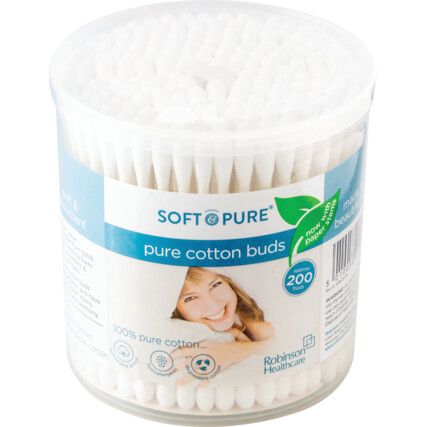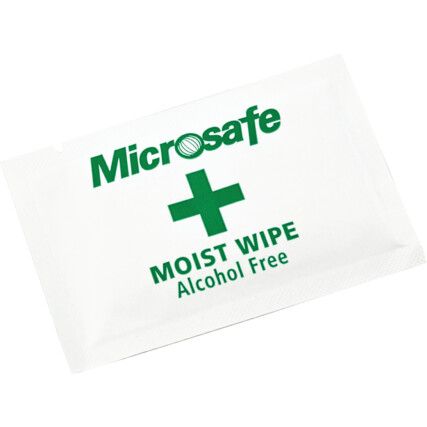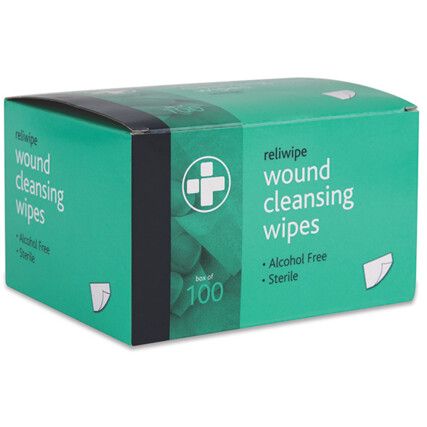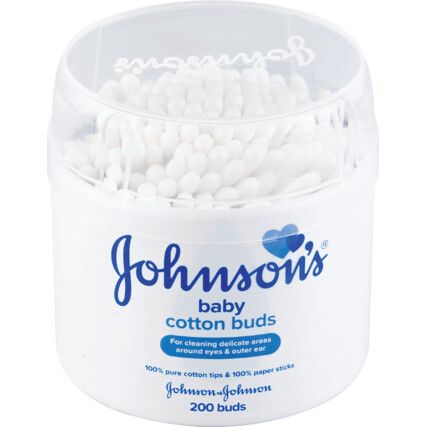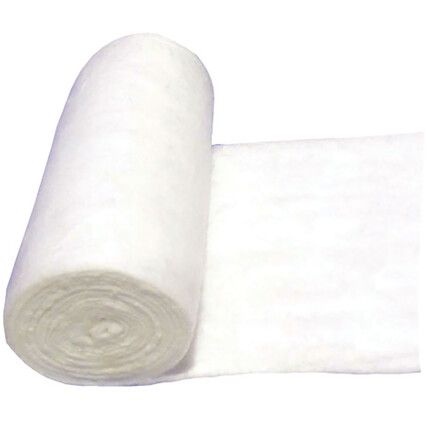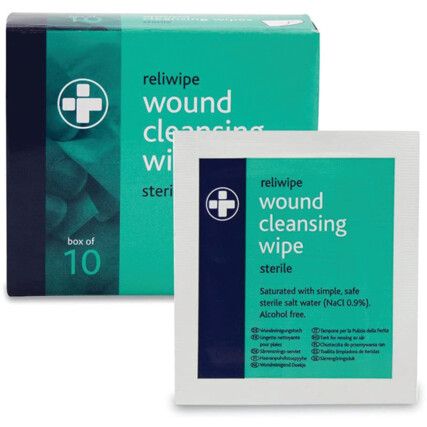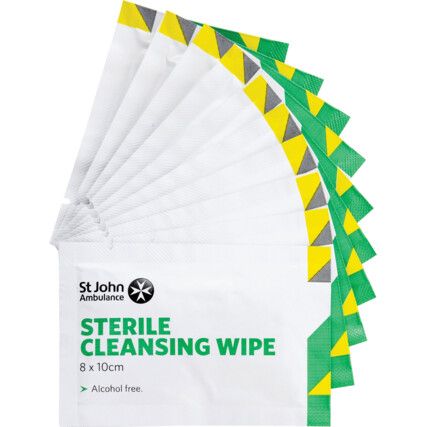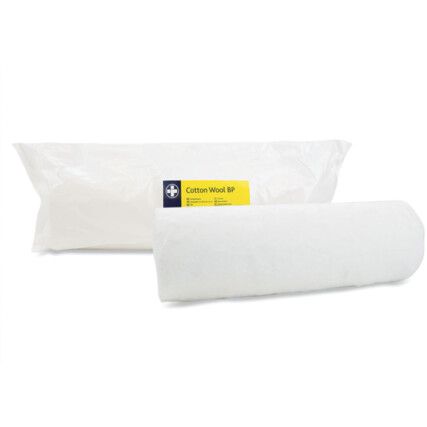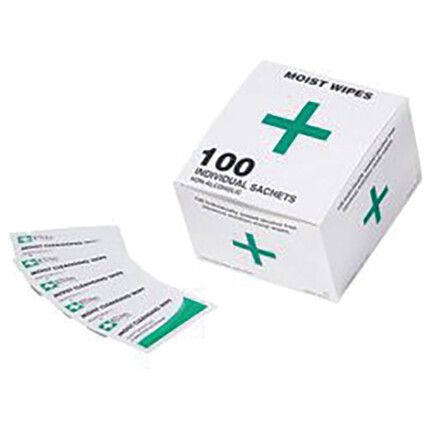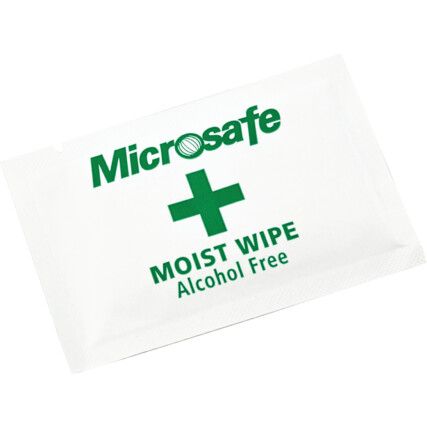Wipes & Cotton Wool
Keep your first aid kits replenished and ready for action with wipes and cotton wool from Cromwell. We stock a wide range of individually packaged cleansing wipes in bulk packs for quick and hygienic wound cleansing, while absorbent cotton wool and cotton buds are ideal for tending minor wounds. Choose from market-leading brands, like Medikit®, Reliance Medical®, St. John Ambulance® and Johnson & Johnson®.
What are wipes & cotton wool?
An essential part of a first aid kit, wipes and cotton wool is used to clean and remove any foreign objects from a wound to reduce the risk of infection after dressing. For patient comfort, wipes tend to be alcohol-free to prevent unnecessary pain, and provide enough moisture to the area to help dressings adhere to the skin.
Cotton wool is often supplied in rolls or in the form of cotton buds. Cotton wool rolls are easily trimmed to size and are absorbent to help clear up blood and can be soaked in water to provide a cooling compress to swellings. Cotton buds are ideal for controlled cleaning of a wound to help remove any debris completely.
Why buy wipes & cotton wool?
Wipes and cotton wool are handy to have around in the case of an emergency. Cotton wool is highly absorbent and can help to keep an area clean when tending a wound. While alcohol and alcohol-free wipes are hygienically sealed and will clean a wound and the surrounding tissue to promote healing after dressing and injury.
When are wipes & cotton wool used?
Wipes and cotton wool are used to sterilise and wipe wounds, to ensure they are clean before sealing them up with a more permanent wound dressing.
Wipes & cotton wool types
• Alcohol wipes - Packaged in the same way as alcohol-free wipes, alcohol wipes contain isopropyl alcohol to cleanse an area before dressing a wound.
• Alcohol-free wipes - Hygienically sealed, these cleansing wipes are infused with sterile water or saline solution which cleans without causing patient discomfort or releasing a chemical smell.
• Cotton wool rolls - Available in a wide range of sizes, BP-grade cotton wool rolls are highly absorbent and are extremely useful when treating minor wounds and injuries.
• Cotton wool buds - Usually double-ended with a paper holding stick, cotton buds allow for targeted and controlled cleaning of wounds.
• Cotton wool balls - Similar to cotton wool rolls, cotton balls are a dense ball shape that are often used for cleaning away fluids and dirt from a wound or injury.
Considerations when choosing wipes & cotton wool
• Type - choose from cotton wool balls, rolls or buds to suit the type you use most often. While the best cleansing wipes are alcohol-free to reduce discomfort and ensure good healing.
• Certified - while first aid products don't need to be certified, always check your business guidelines on what is acceptable for the company's first aid requirements.
Wipes & cotton wool jargon buster
When buying refills and replacements for first aid kits, products are often labelled with abbreviations, grades, and certifications we don't understand. So, to help you to better understand our product range, we've explained one of these abbreviations, so you know what to look for next time you're shopping.
What does BP grade mean?
BP Grade is a label used to reflect that a product is of pharmaceutical grade and complies with the British Pharmacopoeia quality standards. These are outlined in The BP 2022 which contains a detailed brief on each product, the correct labelling convention, and the series of tests they must pass before being classed as a Pharmaceutical Grade product.
FAQs
What are other names for first aid wipes?
Wipes found in a first aid kit can be called sterile and non-sterile wipes or swabs, alcohol swabs or alcohol-free swabs and antiseptic wipes.
Is cotton wool good for cleaning wounds?
Yes, medical-grade cotton wool is used widely in the healthcare sector as it absorbs many times its weight in fluids and is ideal for use during surgery, for padding out and protecting injuries. Cotton wool isn't intended to be left stationary or used in direct contact with a wound as padding. Doing this will cause the fibres to dry and stick to the wound which will then impede the healing process.
